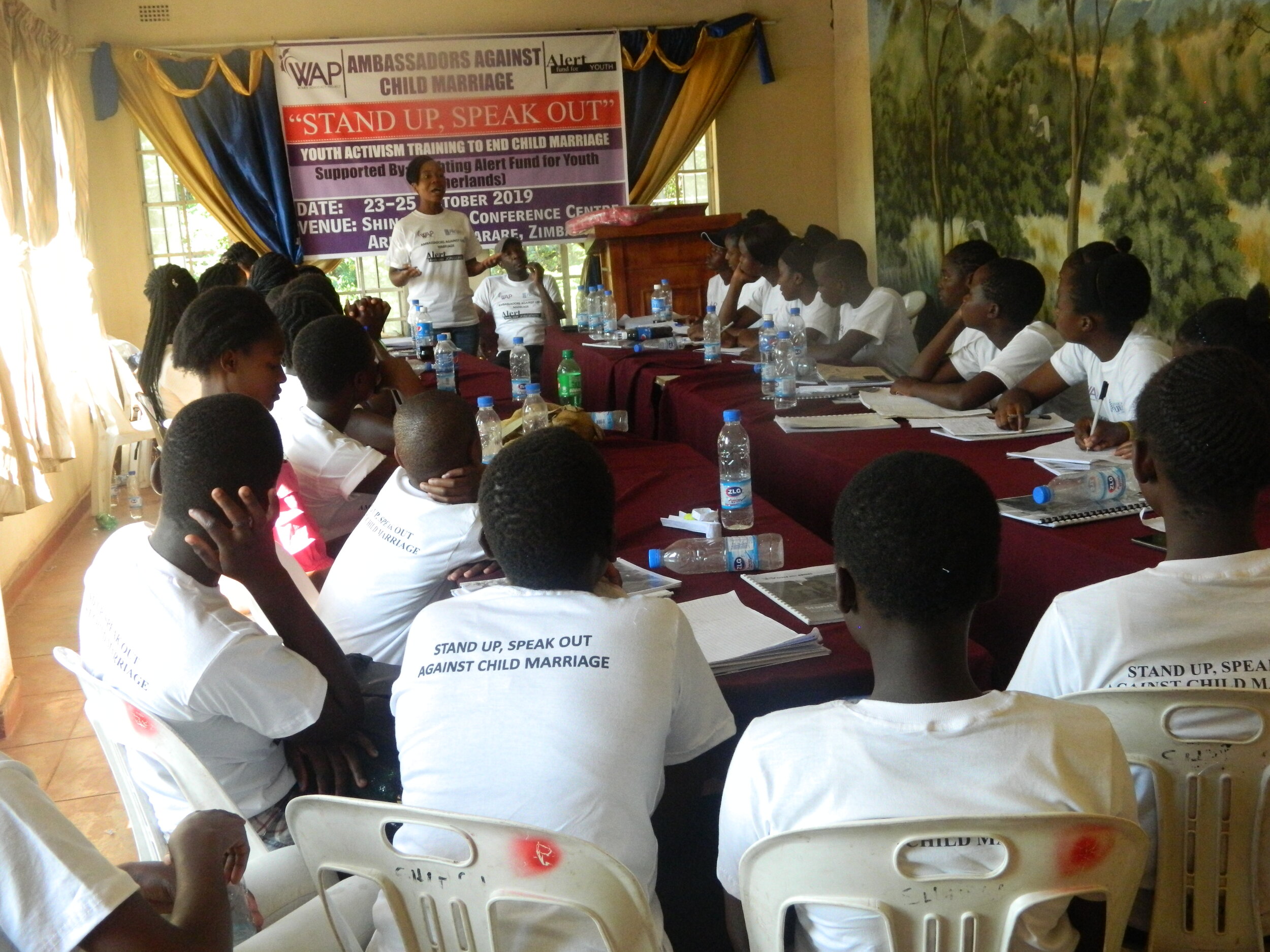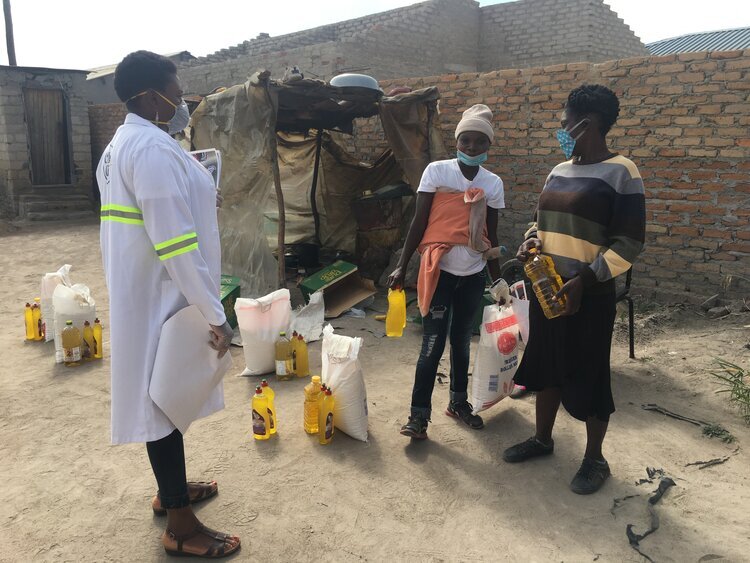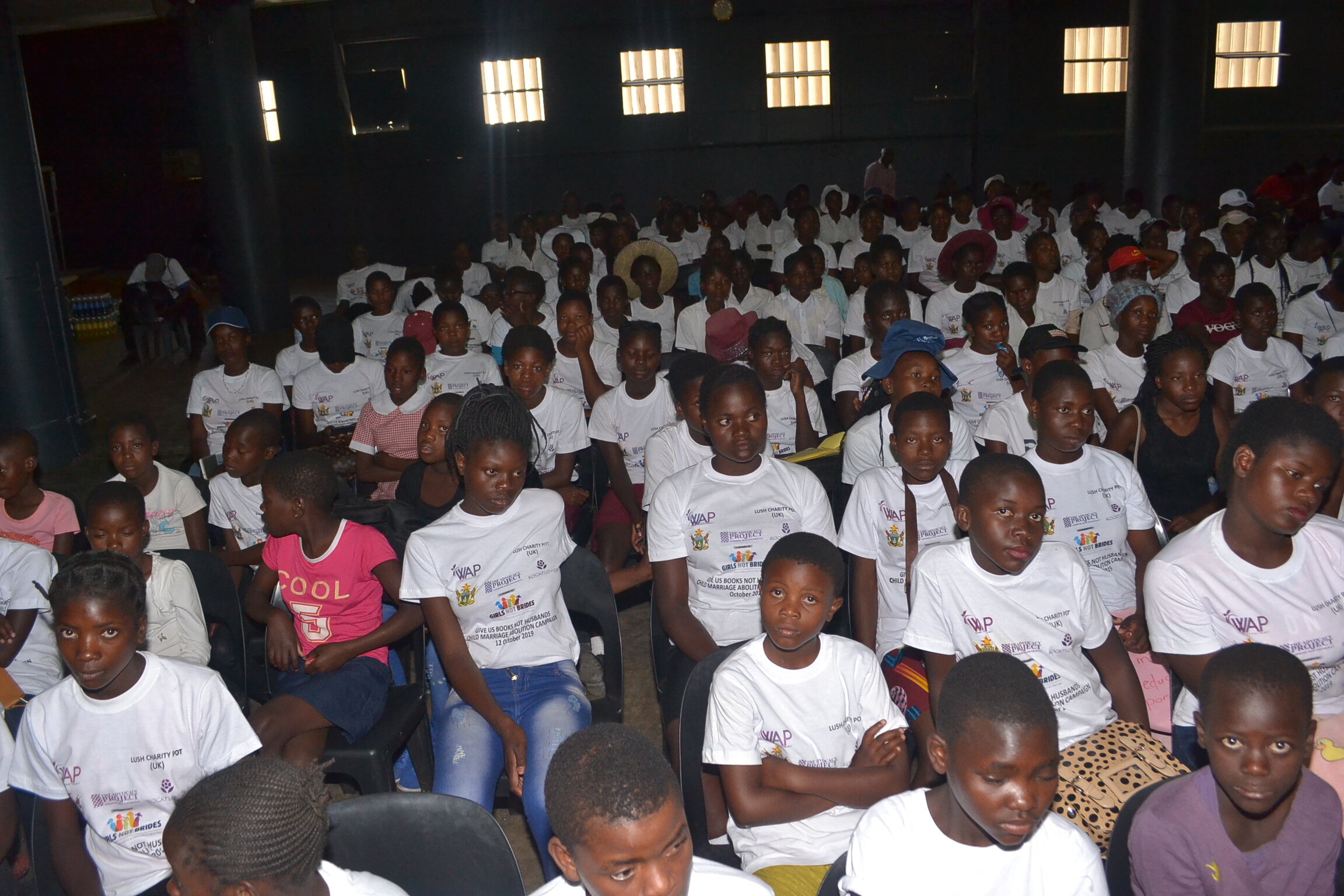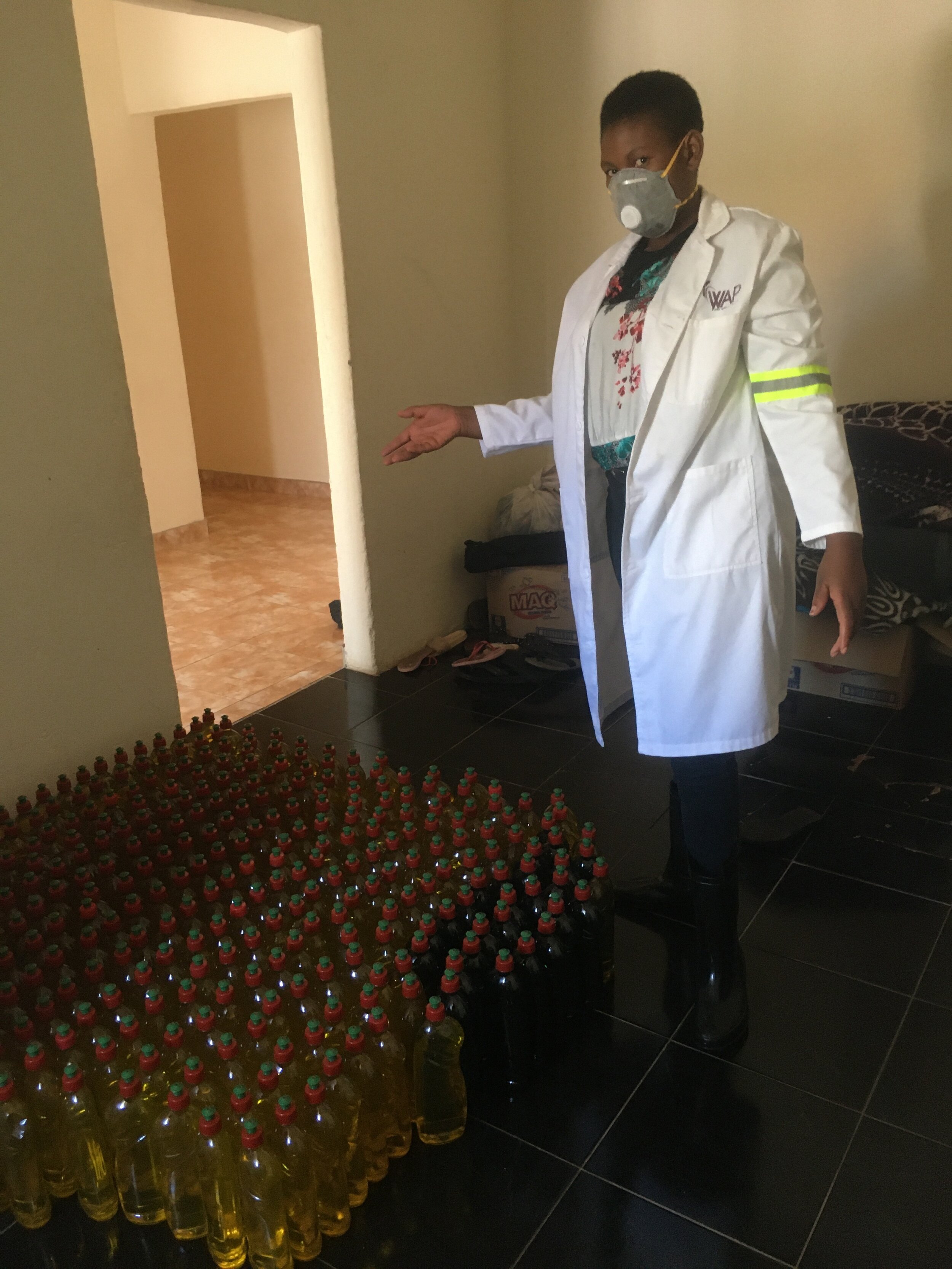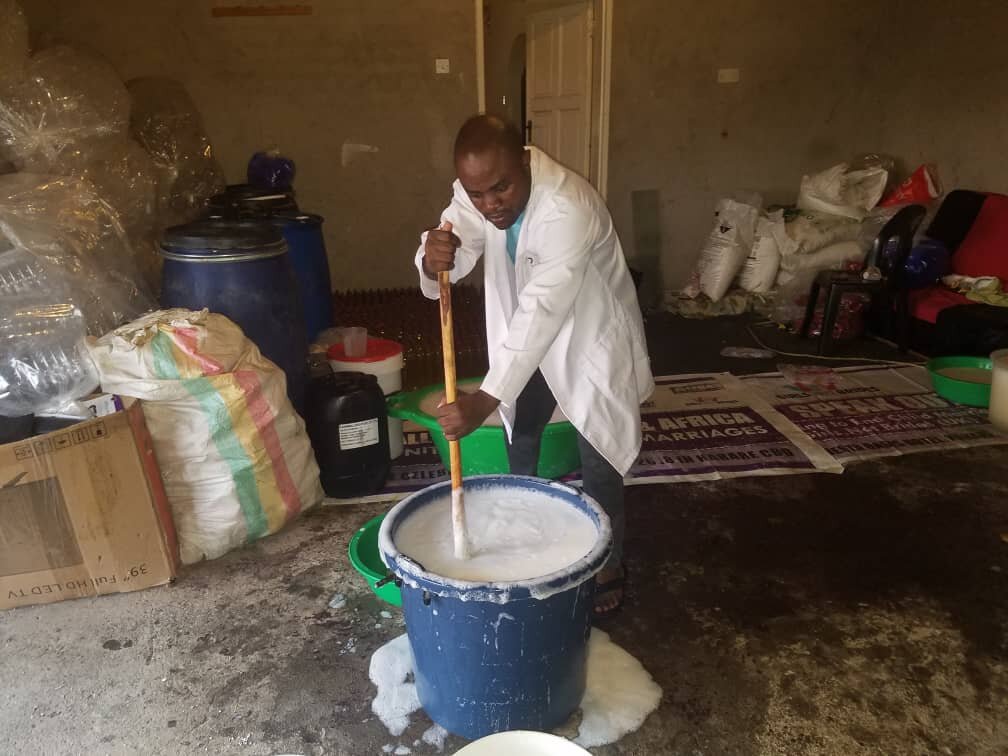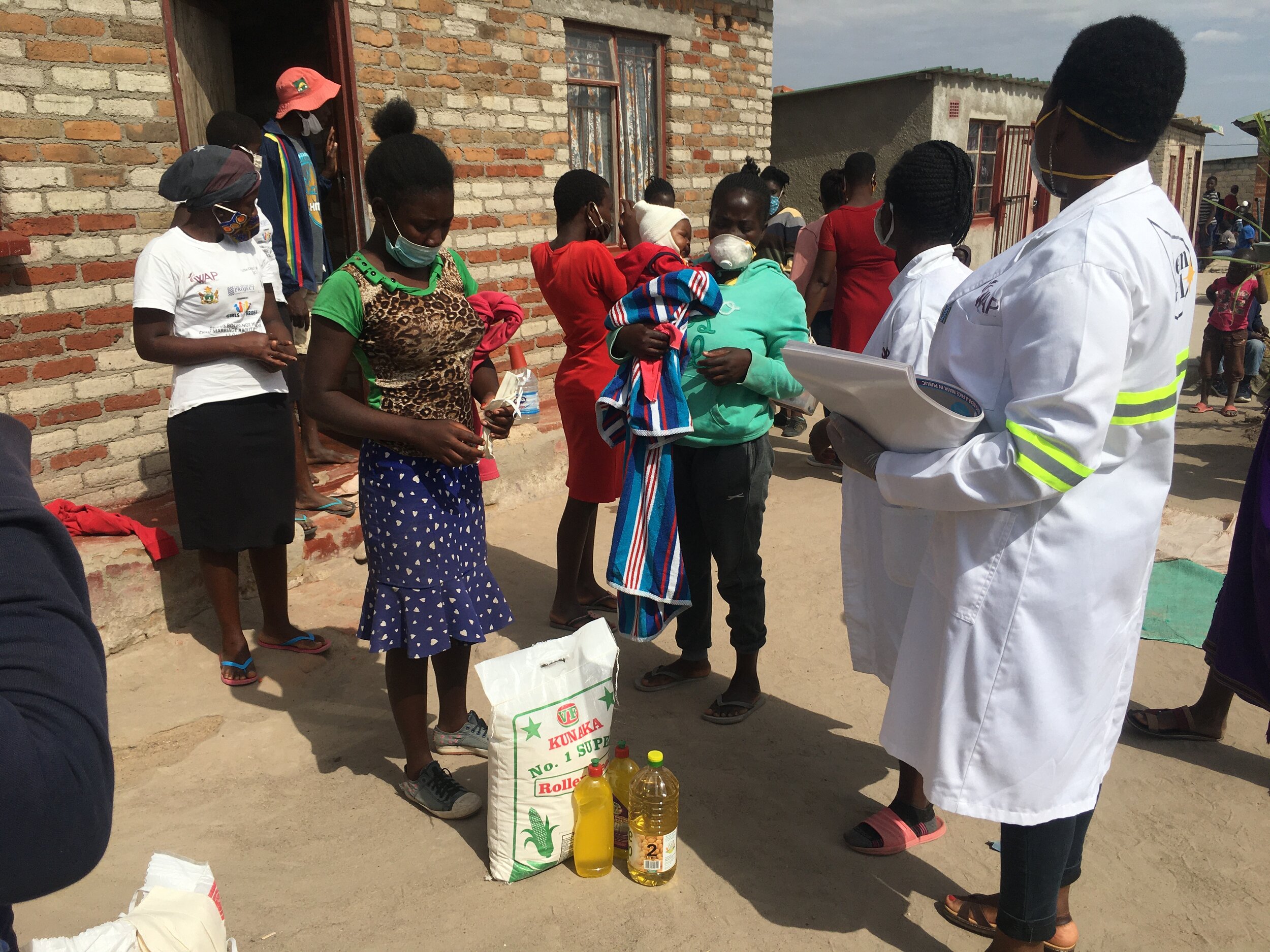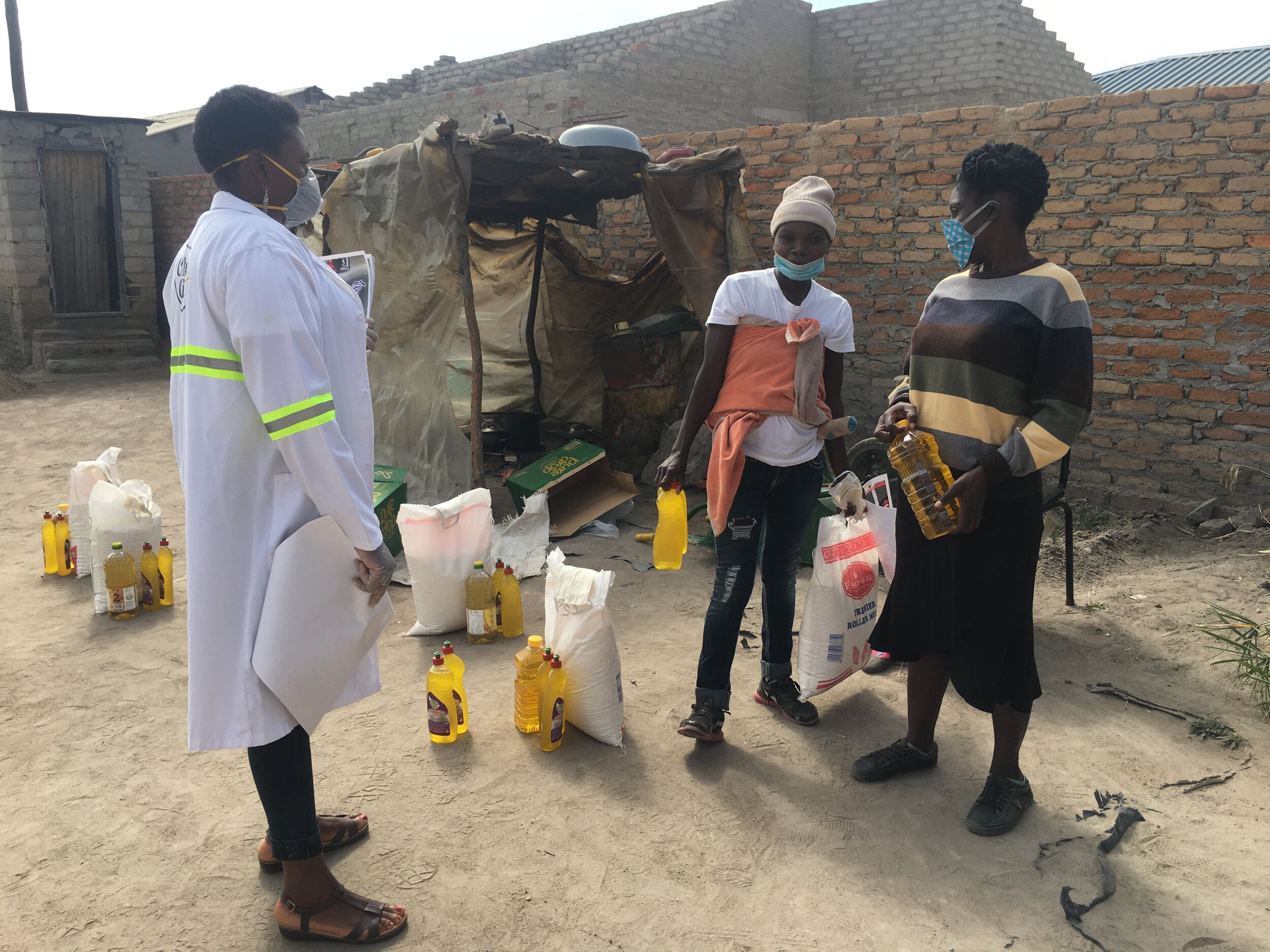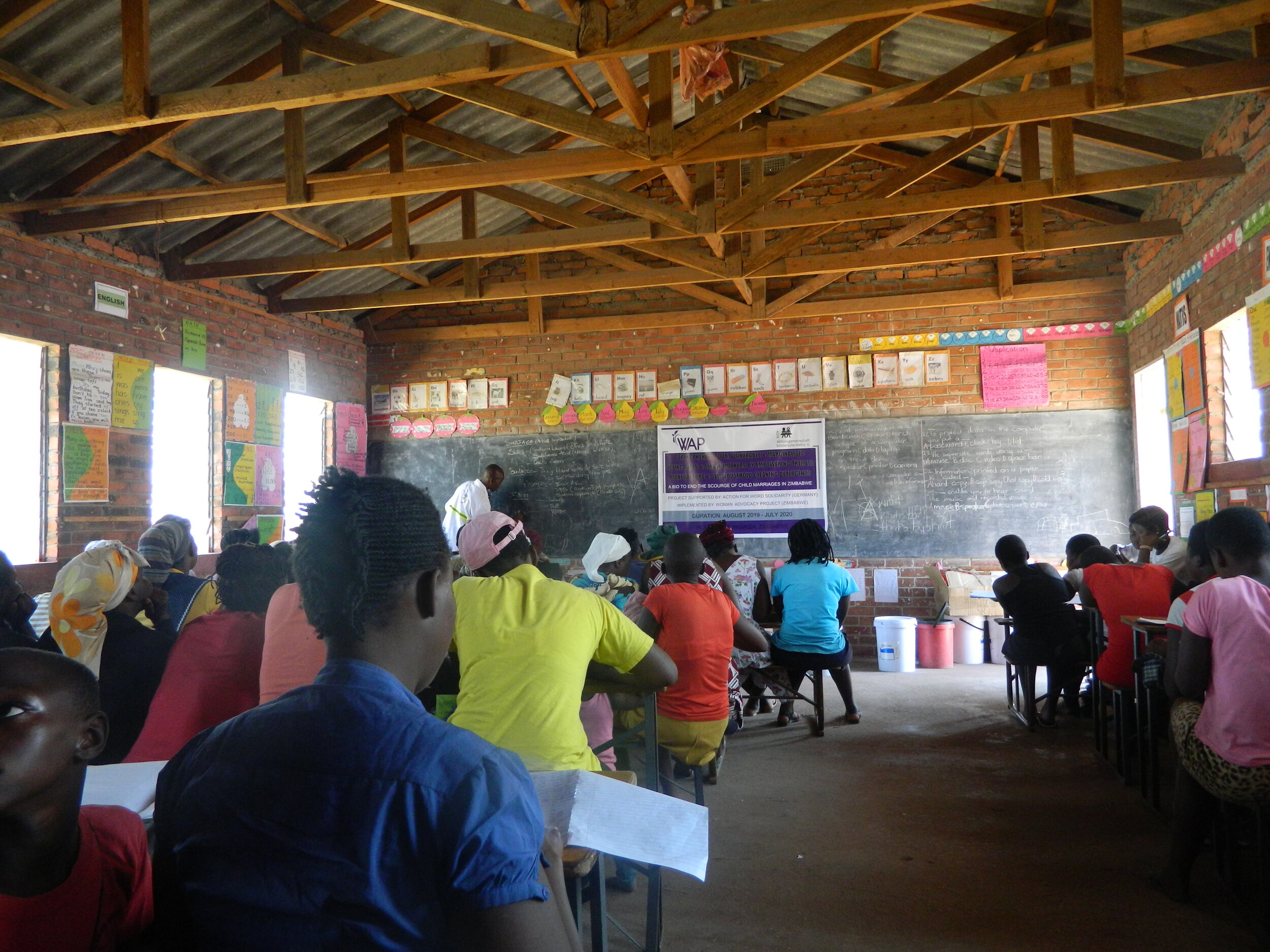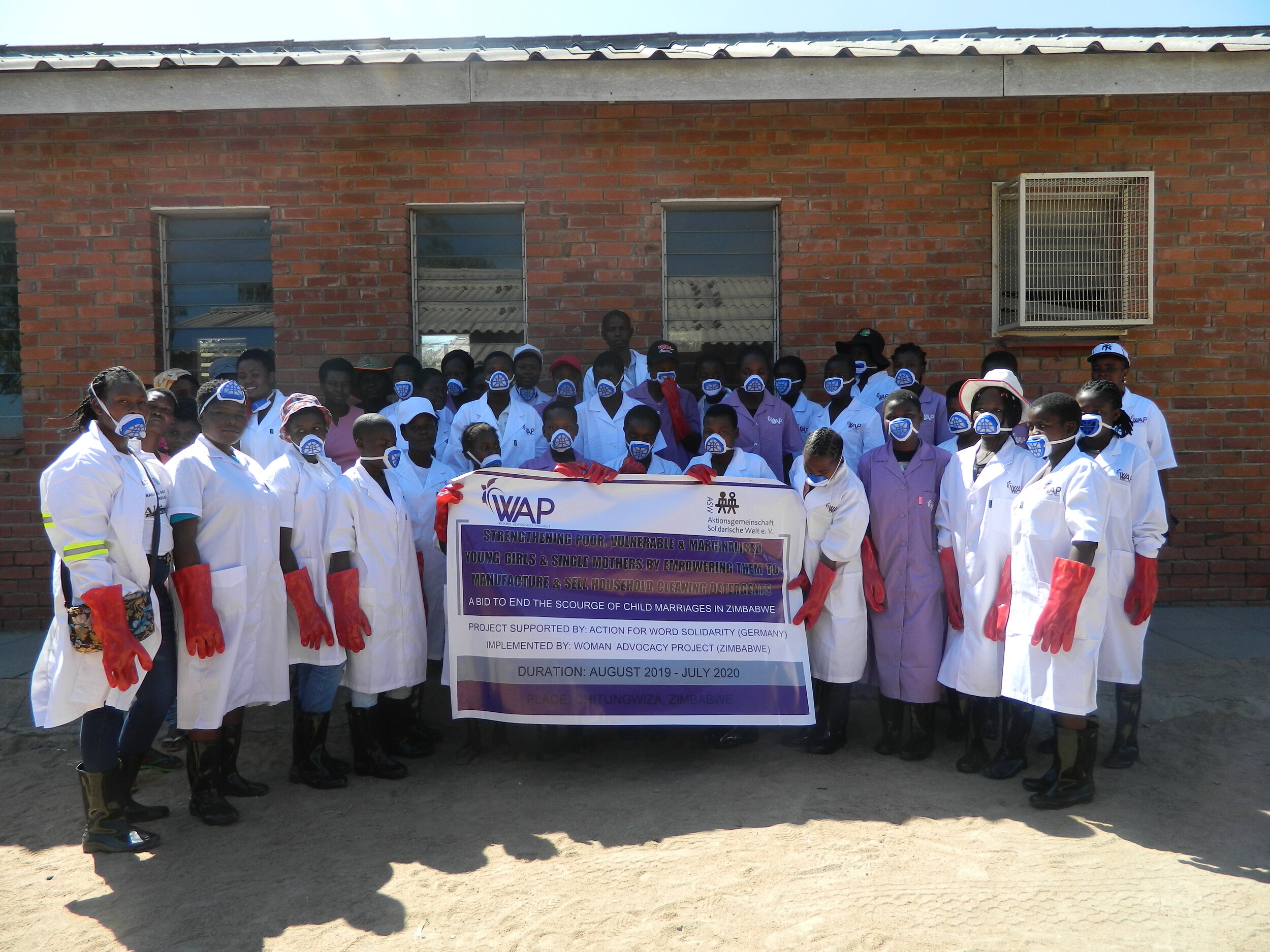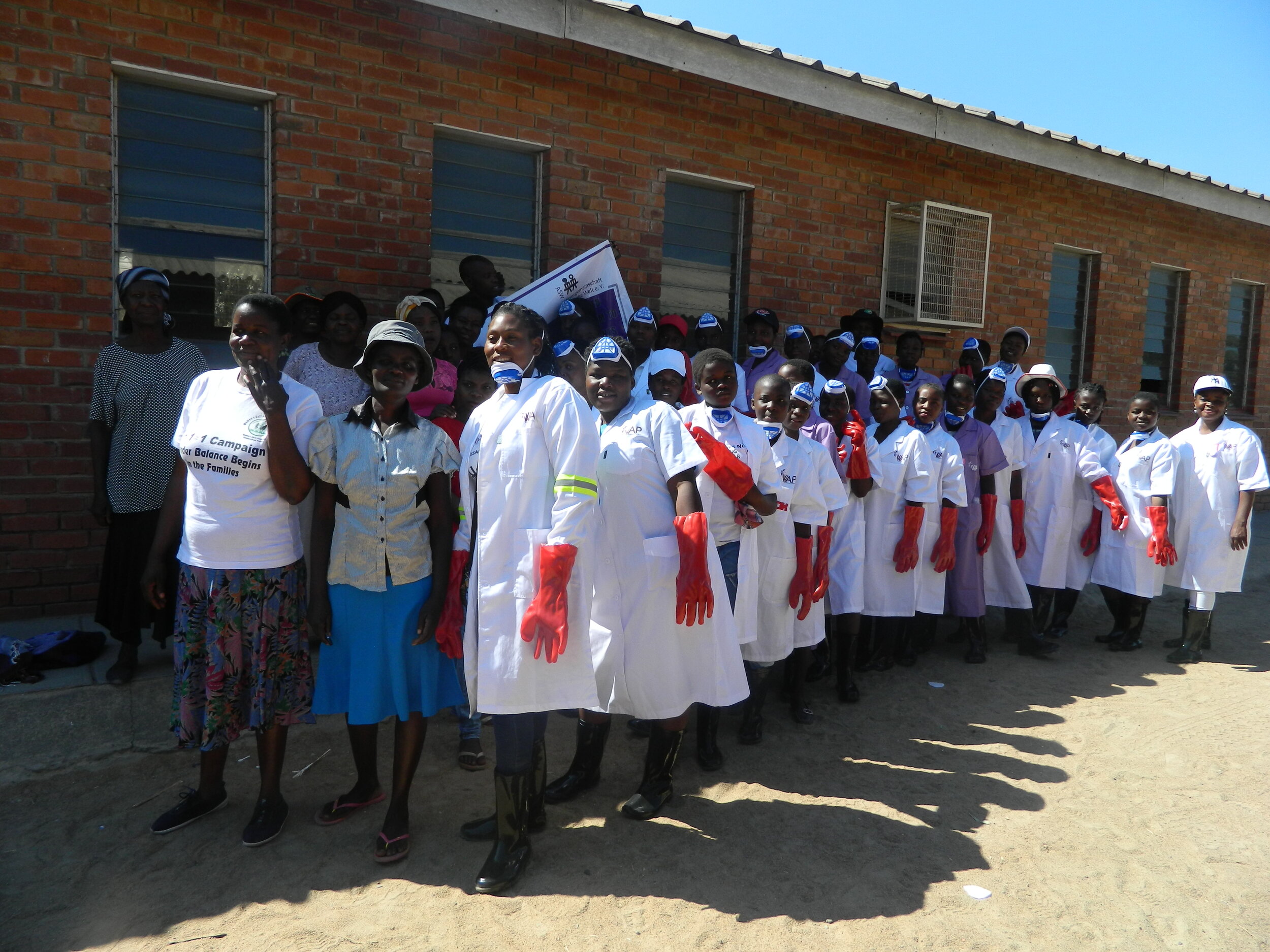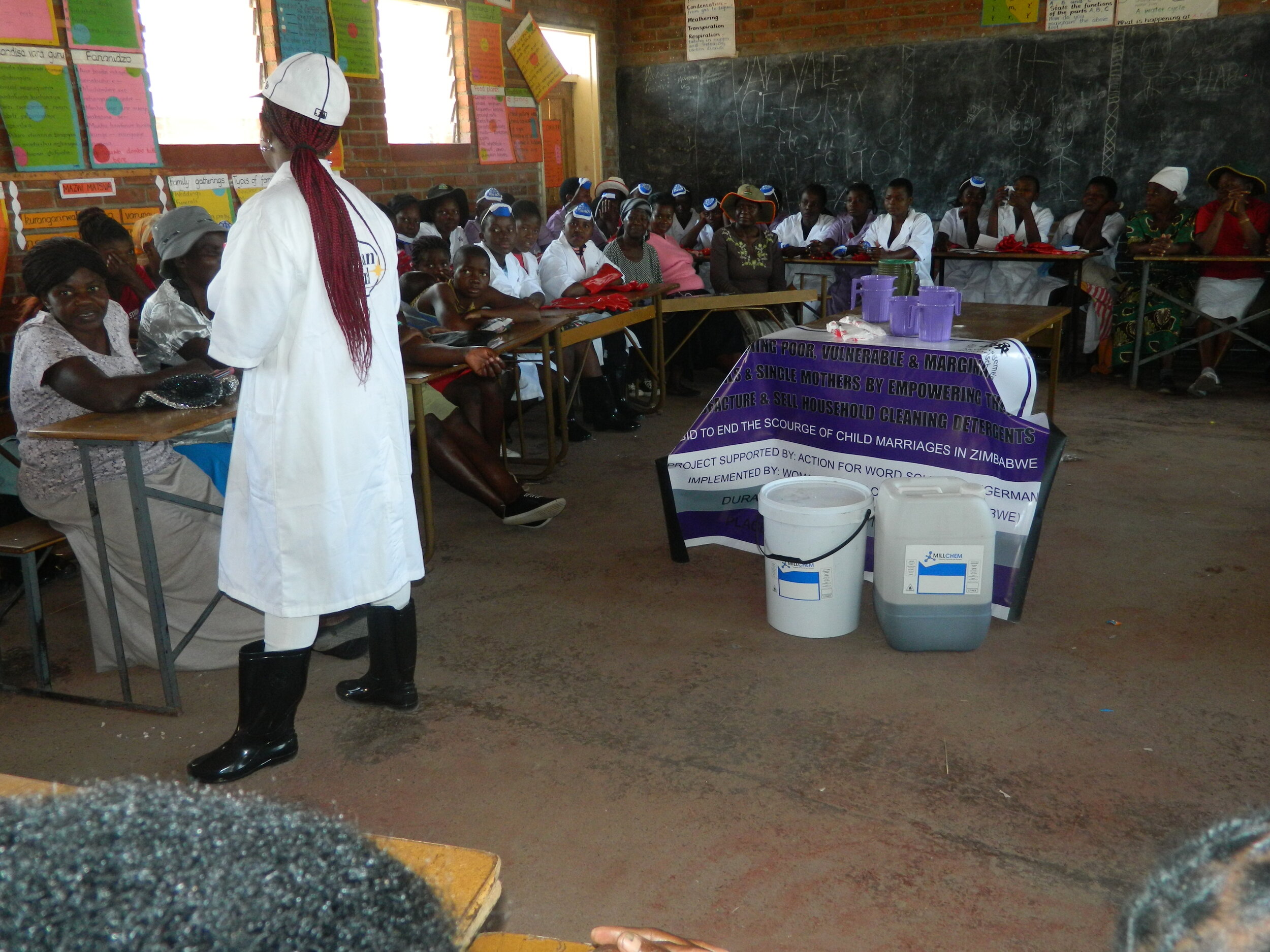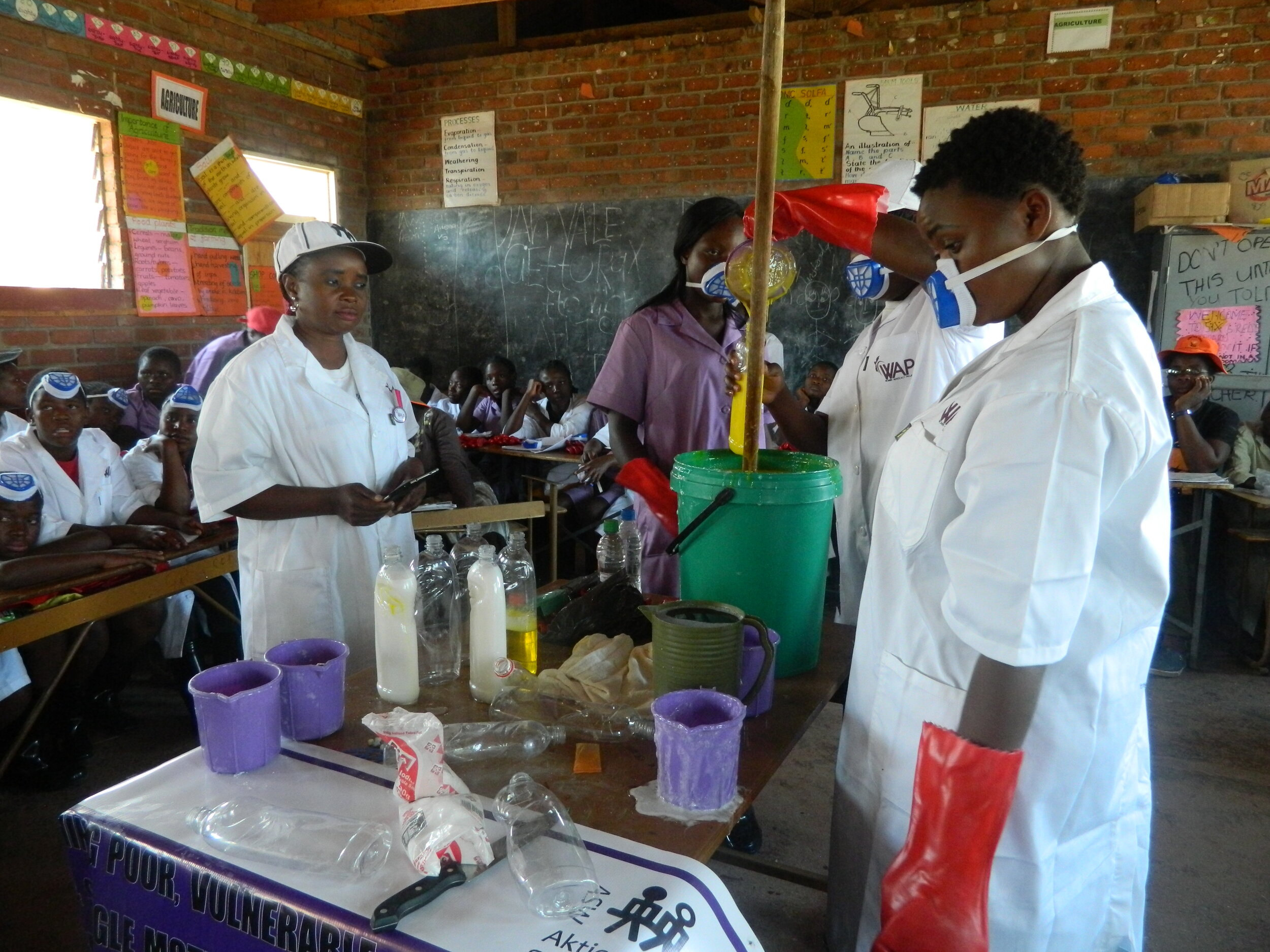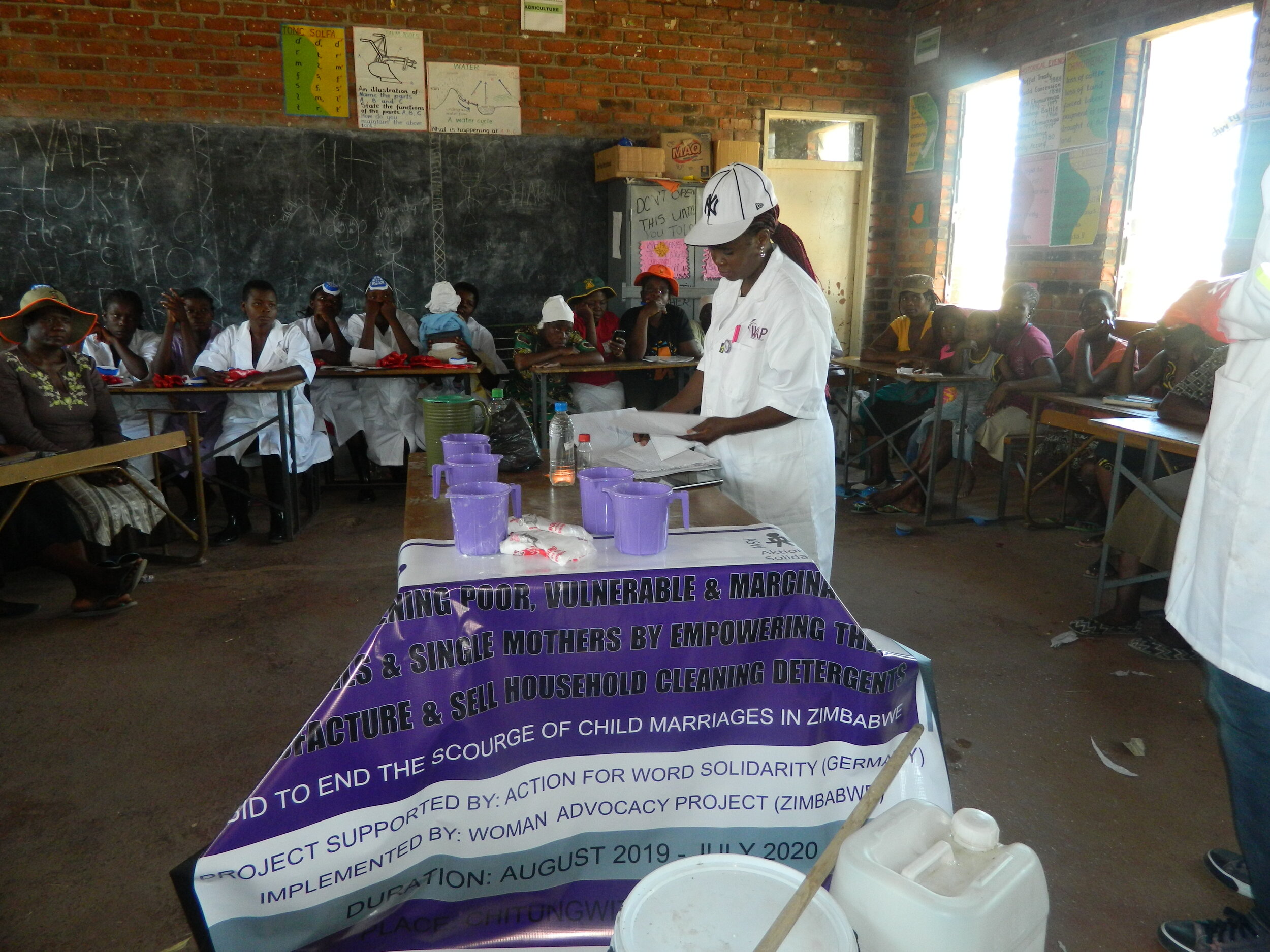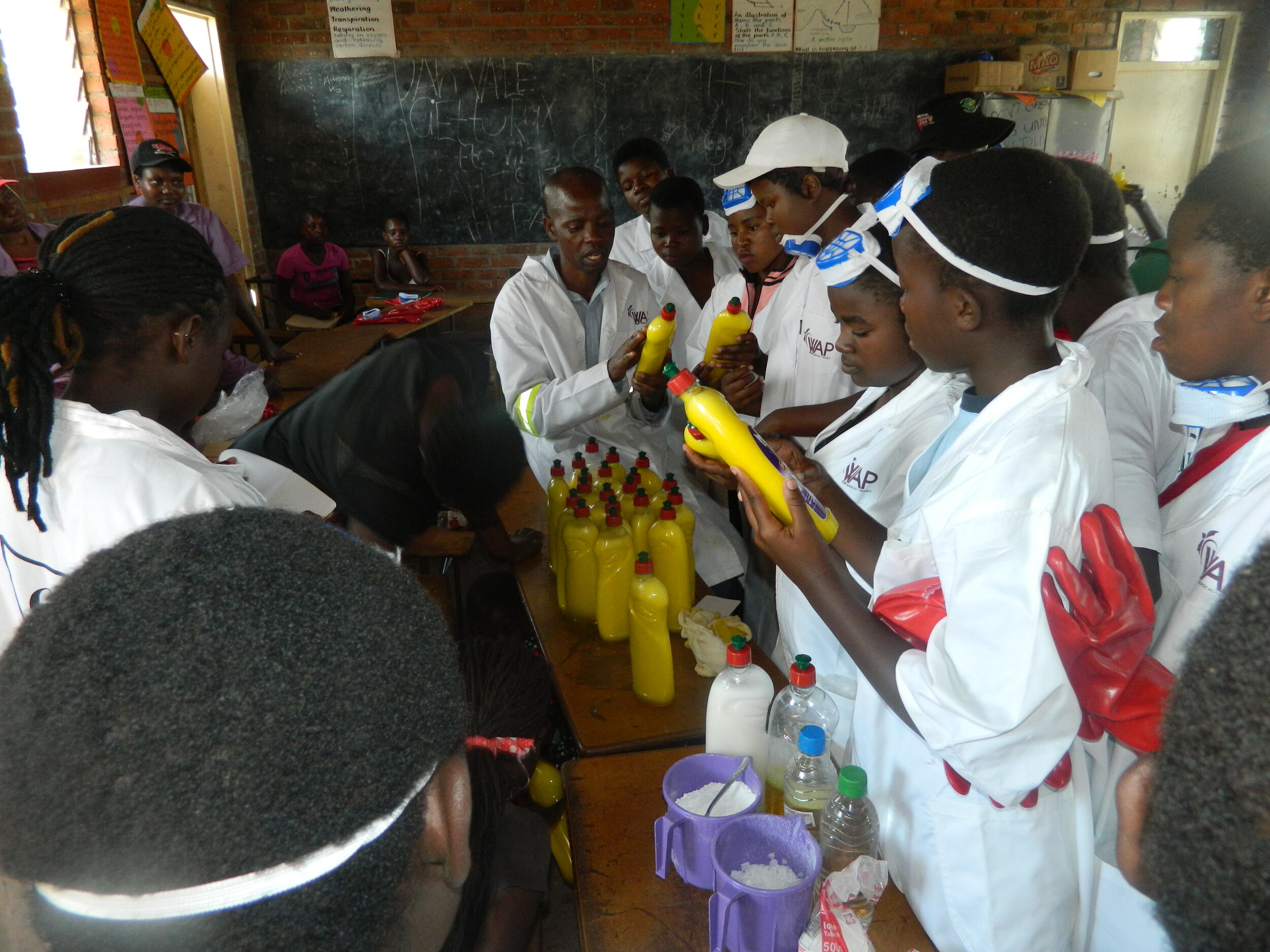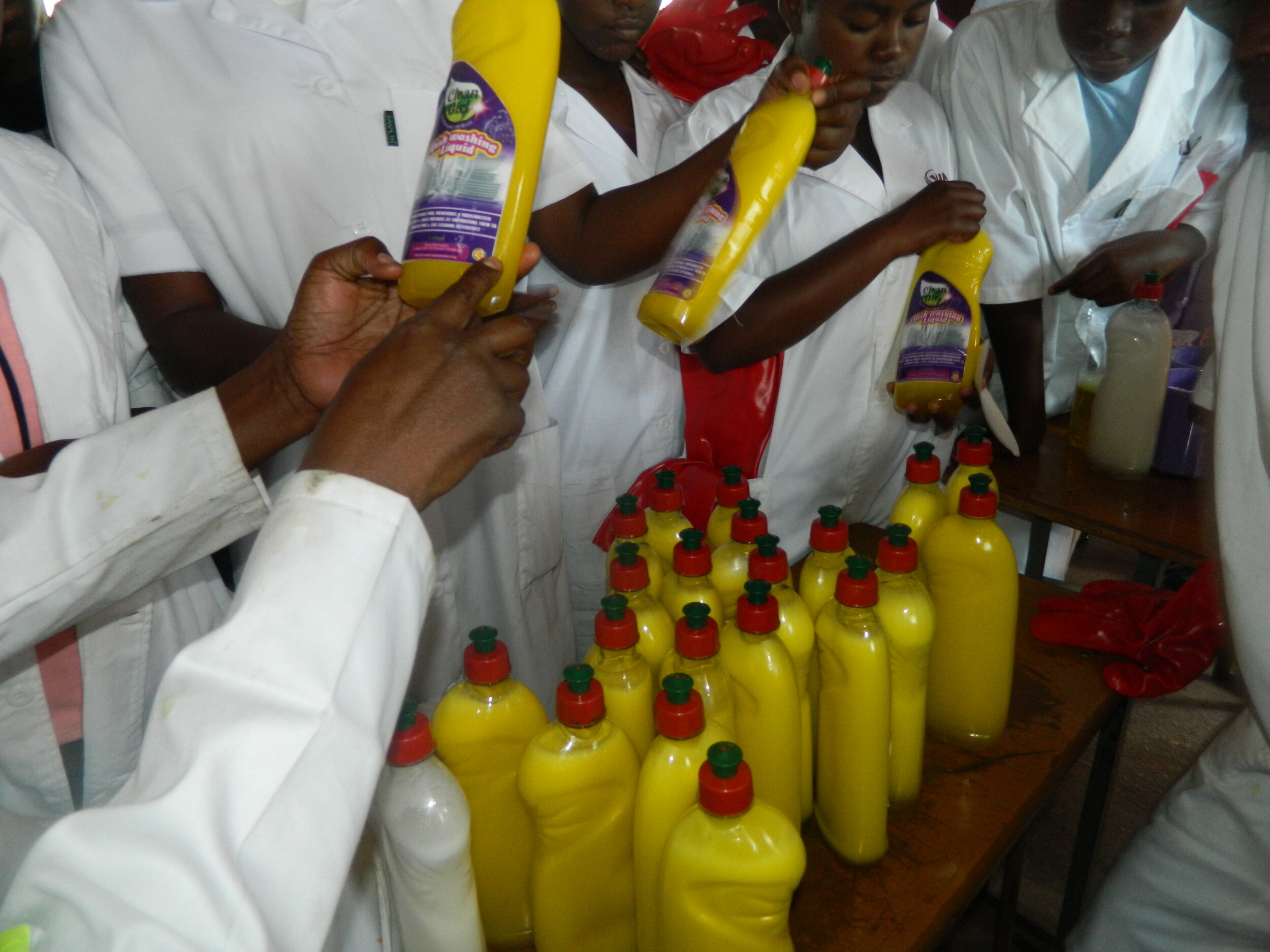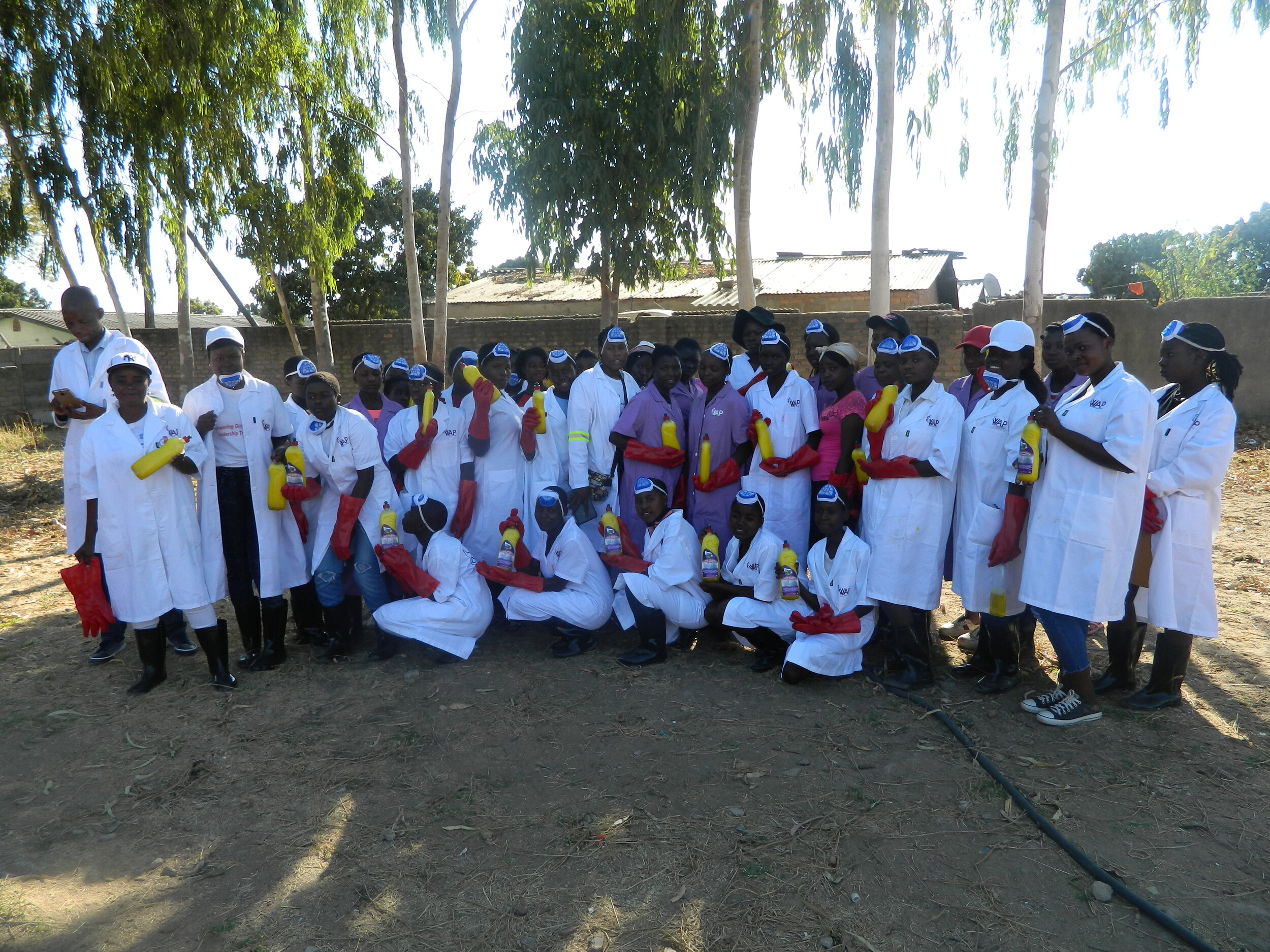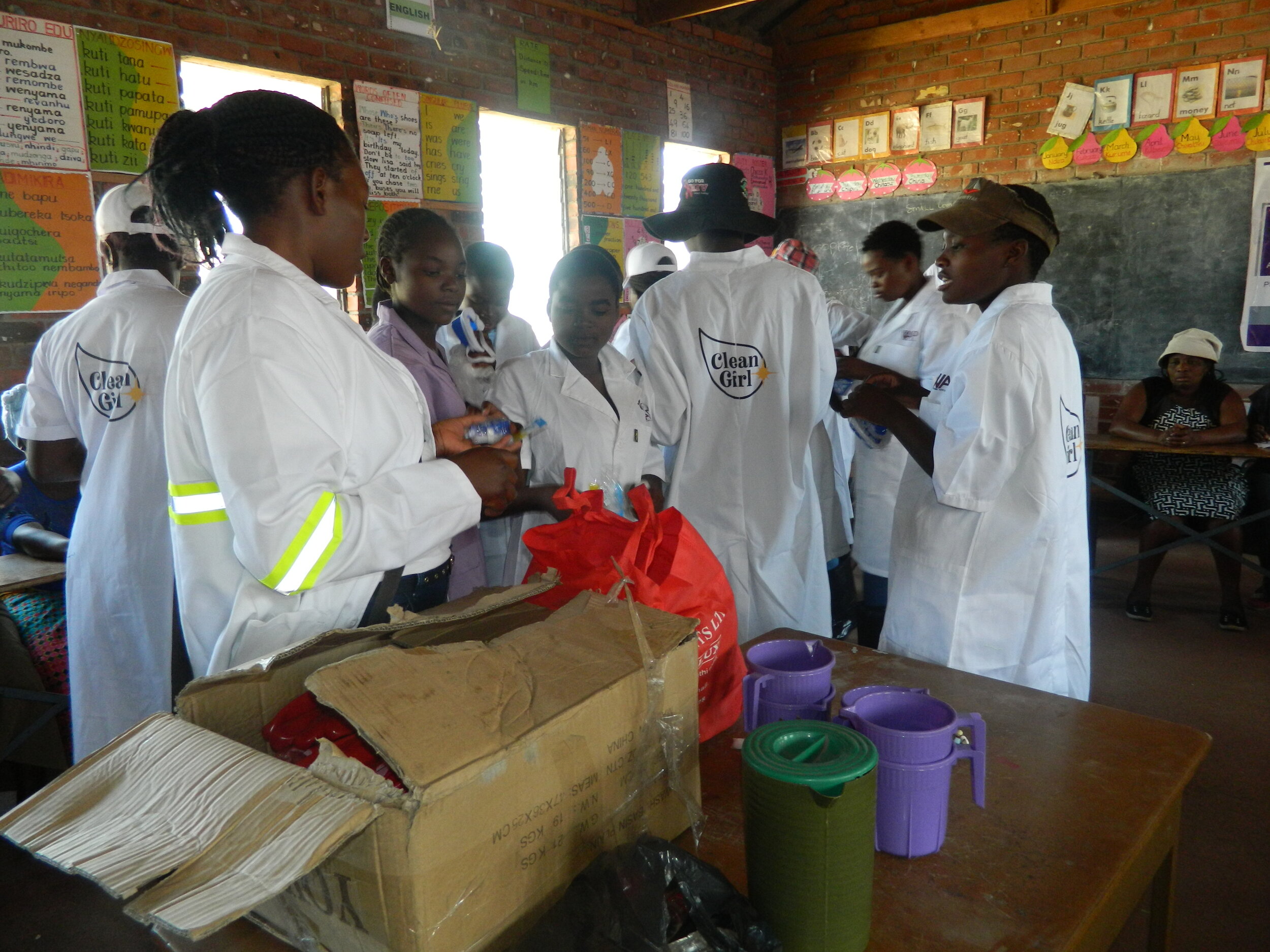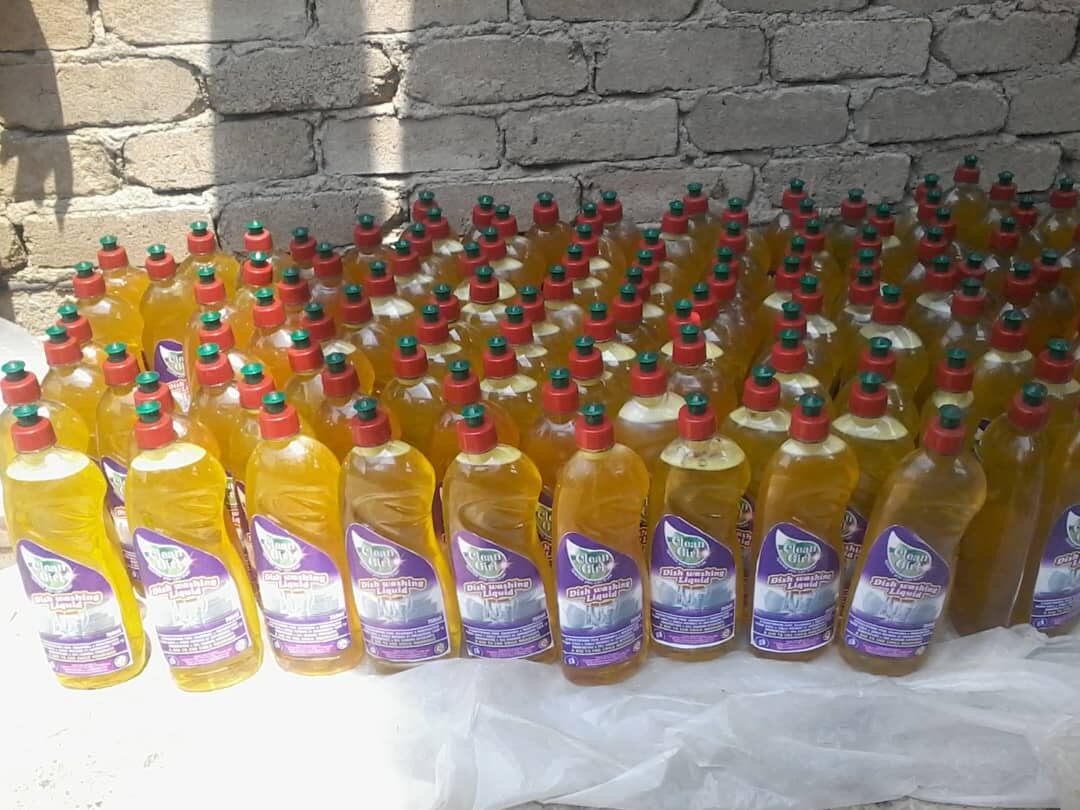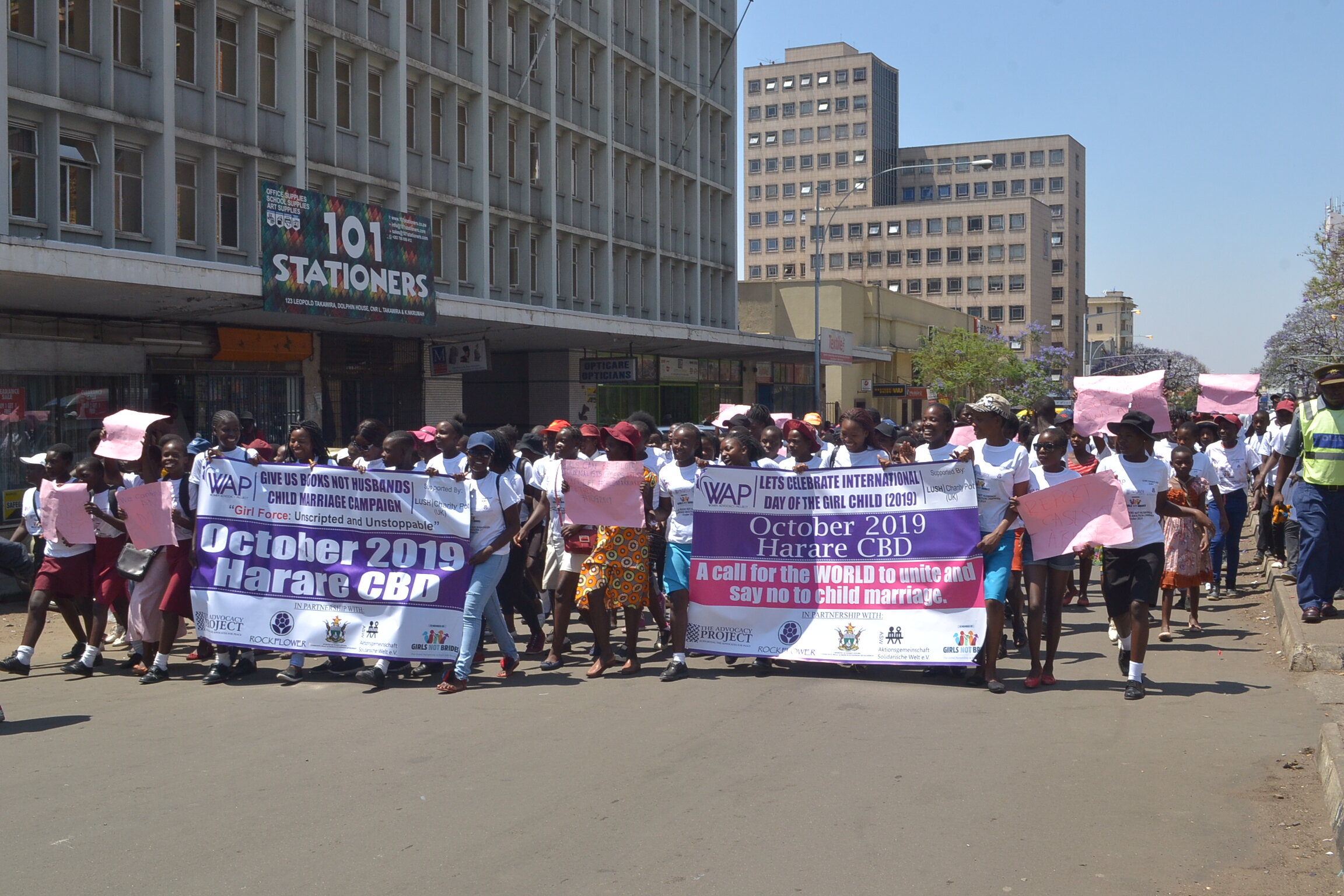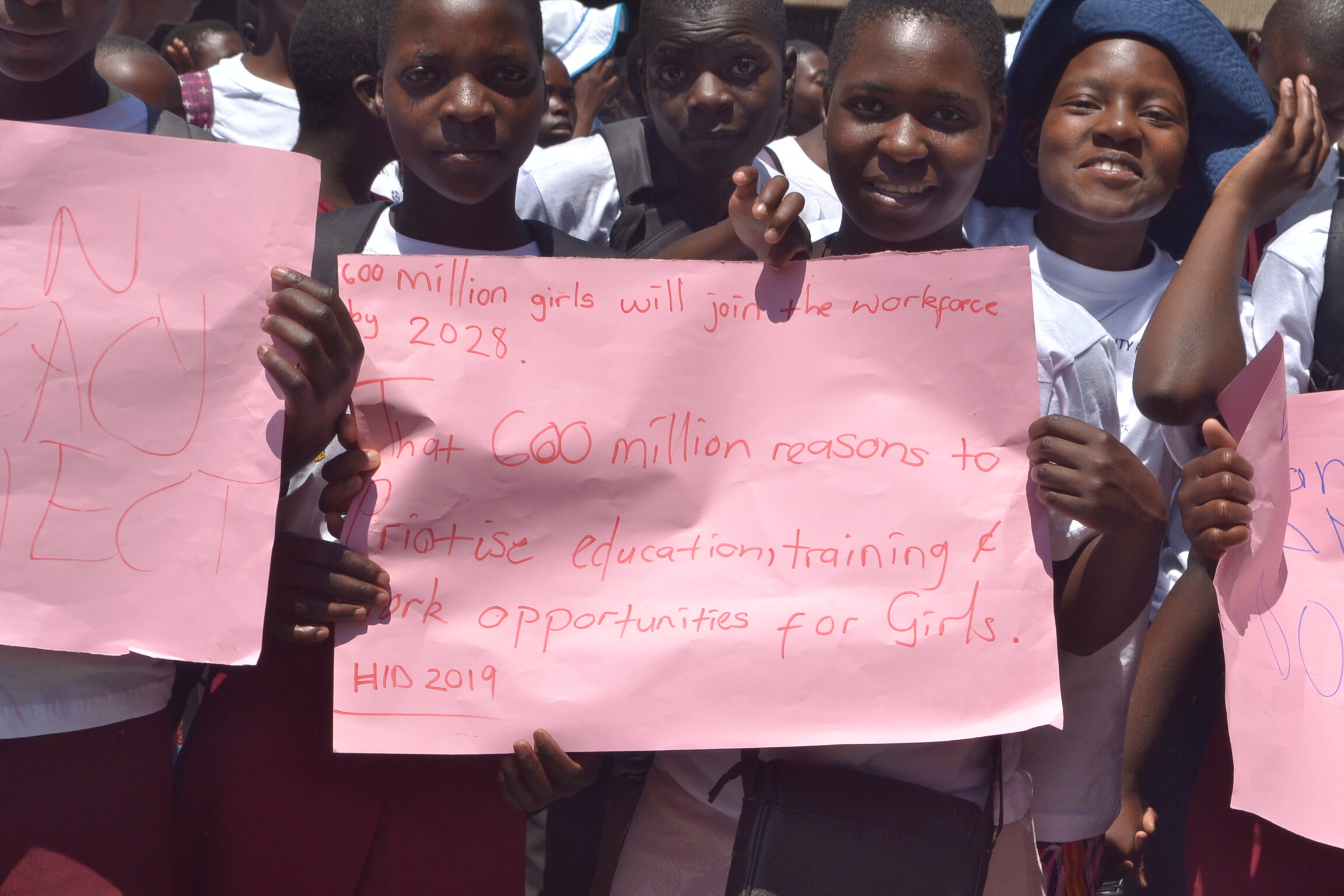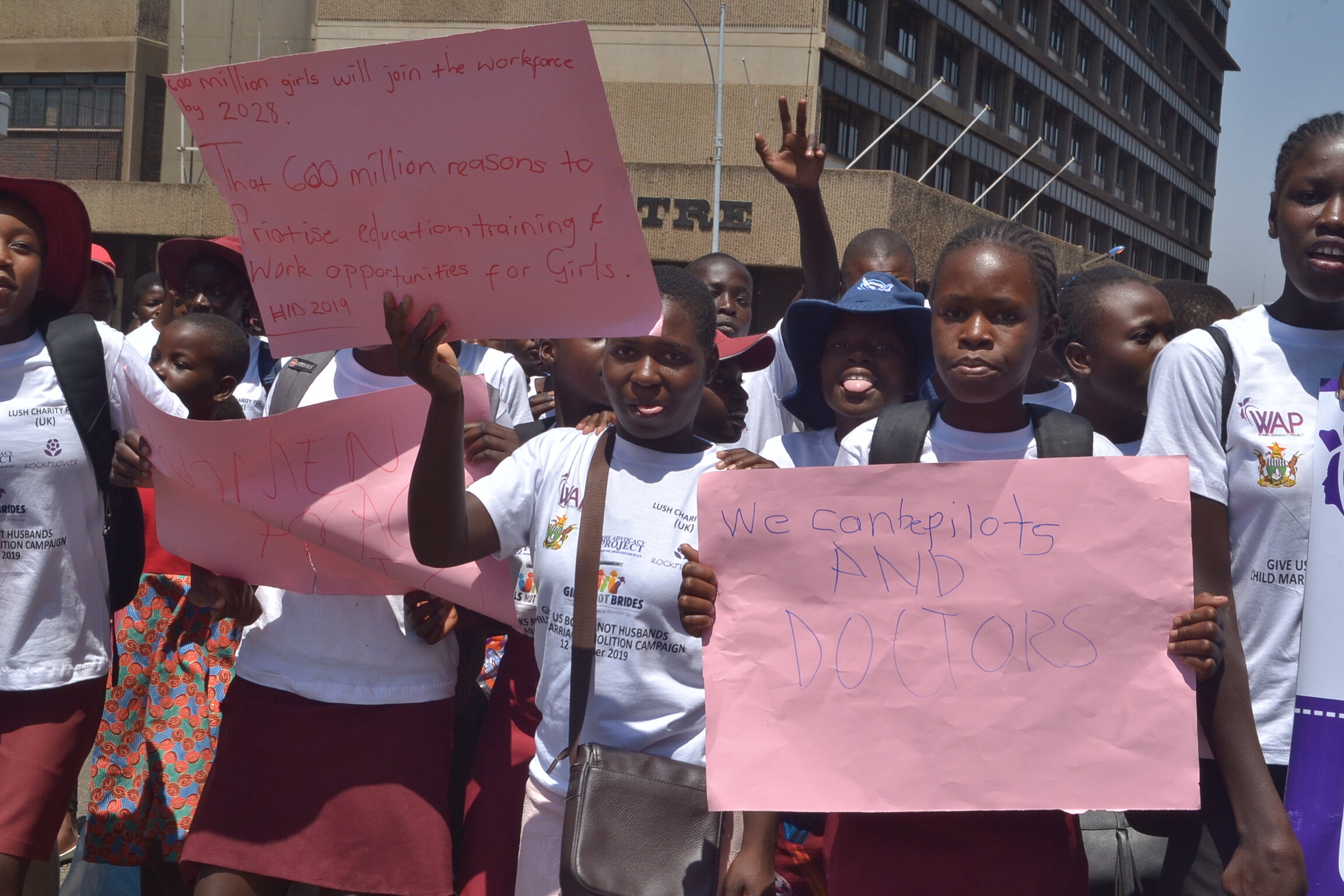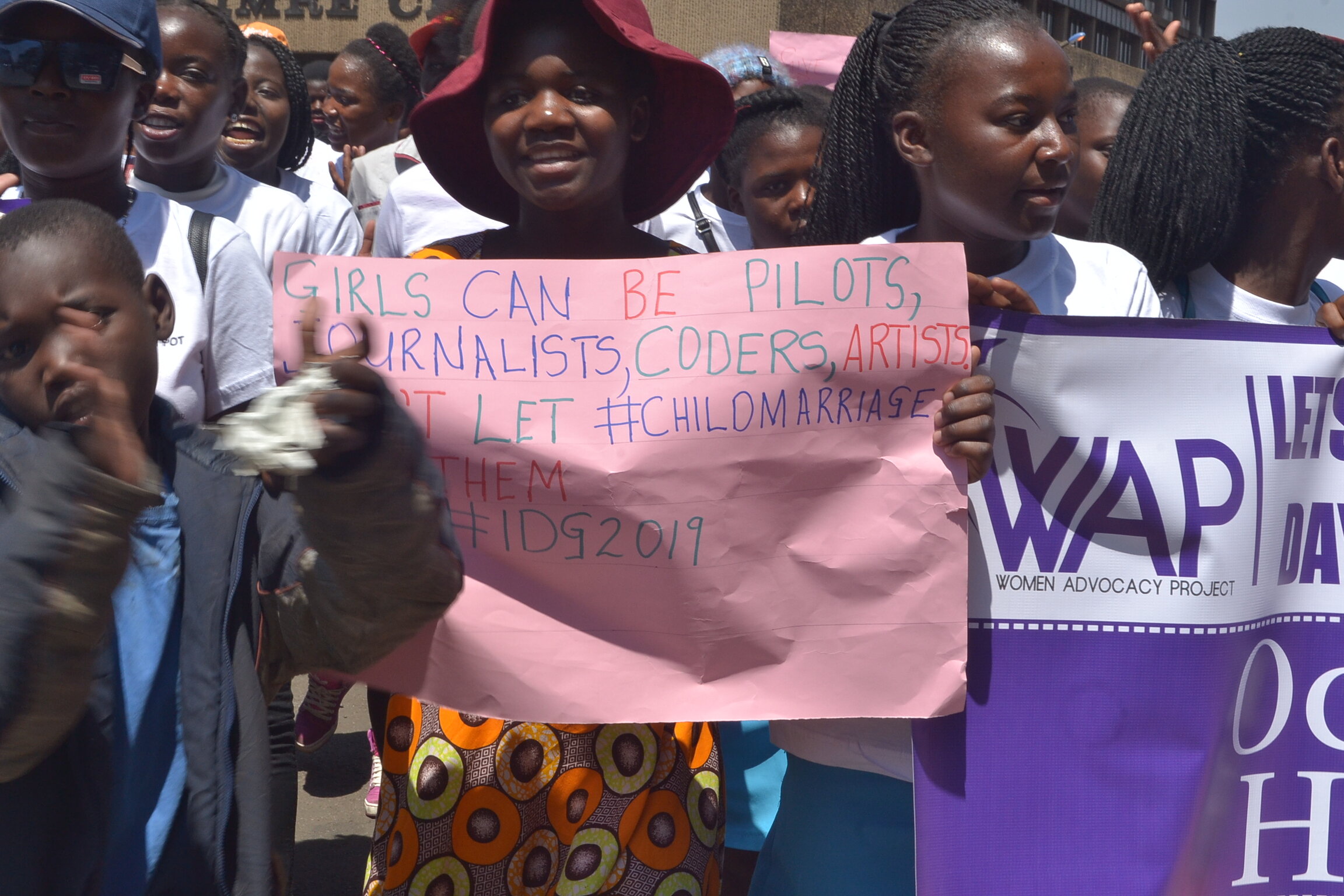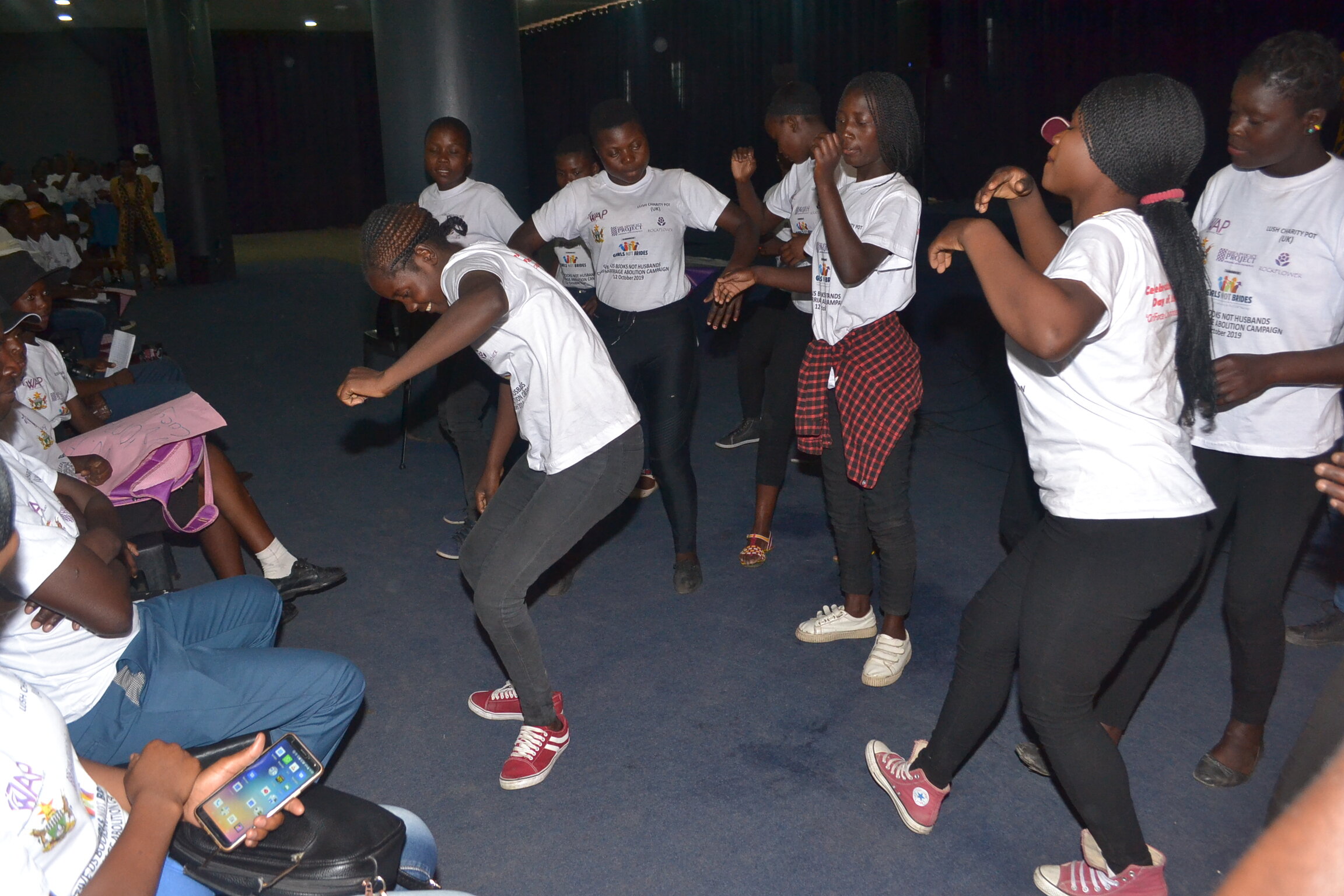We have featured the work of Women Advocacy Project, Zimbabwe, several times over the five years that they have been a Rockflower partner. However, after a recent zoom call with the Catalyzer Collective, it felt important to mark the many milestones that have been achieved by WAP and to recognise the single-minded focus, grit and determination it takes to prevent early child marriage in the communities where they work.
Constance Mugari, Founder and Executive Director and Mr. Akenga Dickson Mnyaci, Deputy Director of WAP, spent over an hour sharing the daily challenges they face in this endeavor but more importantly describing for us the enormous strides they have made in addressing the myriad of barriers to preventing child marriage.
WAP was created by a group of women from the surrounding communities of Harare in response to the lack of attention on issues affecting women and girls, especially the pressure to marry at a young age. By committing to promoting and protecting the rights of vulnerable and marginalized women and girls in communities through advocacy campaigns, providing safe spaces through local club meetings and more recently, through the creation of their soap making brand Clean Girls Soap, WAP ensures that the girls are front and center in the effort to improve their lives and those of their families. The creation of Clean Girls Soap has provided a source of income as am alternative to child marriage being the only solution out of acute poverty. Through the education and training of the girls on how to make and distribute Clean Girls Soap, they have developed new professional skills providing a pathway to future prosperity that would otherwise be blocked.
Rockflower’s Catalyzer Collective, a group of individuals committed to supporting and promoting the work of all Rockflower partners meets once a month to speak directly with partners and hear of their progress. In the last meeting in April, the Collective members were able to learn about WAP’s work, the challenges being met, the progress being made, and more importantly the hopes and plans for the future.
One of WAP’s greatest skills is their ability to reach out to funders and organizations who will understand and appreciate the long term benefits of the work they do. Rockflower’s partnership with WAP began in 2016 and we continue to support them in whatever way is needed. WAP has since gone on to attract significant support from The Advocacy Project, who really deserve the credit for ensuring that Constance and Dickson were given the technical support for their ambitious goals. Action for World Solidarity and most recently Together Women Rise (formerly Dining for Women) and several others share in this collaborative investment into the dreams of Constance and the Girl Ambassadors which will translate into a shared vision of future possibilities.
To date, WAP has completed the first phase of the “Clean Girl Soap Making Project” and has now moved into phase two. In phase one, the organization worked with 40 girls selected from two of WAP’s girls clubs. The girls learned to formulate, produce, package and sell 6,330 bottles of premium dish soap to over 15 local shops. The organization has received an official business certificate for “Clean Girls” and are in the process of receiving their product certification from The Standard Association of Zimbabwe. They have also invested in a solar energy system that will generate enough energy to power their soap processing facility. As a result of phase one, each girl involved in the soap making process was able to earn $21 USD of income.
Many of the girls involved in the program were unable to afford school fees and had to abandon their education. They were struggling to help provide for their families in an area with an unemployment rate higher than 90%. Before the intervention of WAP, many were in a situation that pressured them to marry very young in order to relieve the financial burden on their families. Perhaps the most significant result of WAP’s work is that 80% of girls involved with WAP have re-enrolled in school.
The parents of the girls involved in WAP’s Soap making project have also been extremely grateful and amazed by the results of the program.
One mother shared the following with WAP, “I want to thank WAP, particularly our Chitungwiza ambassador Evelyn. I met her when she was visiting her girls and I told her that I wanted my daughter to also join her club. Ever since my child joined her team, she has improved a lot, especially during the lockdown. They were not going to school but they were always occupied with something to do. Also, the income generating project they are doing has empowered her so much. I no longer worry much about her pocket money. She is now able to buy things for herself, like clothes, sanitary wear and things she desires to have as a girl. Many thanks to WAP for their great work. My daughter has completely changed even in character and she is now different from many other girls in the neighbourhood.”
The organization reported on the immense challenges they faced as a result of the COVID-19 outbreak, writing, “The girls could not meet as everyone was required to stay at home. The WAP team could not move easily from one community to another as the Police had mounted checkpoints almost on every route leading to Harare's central business district, stopping cars and turning away pedestrians who had no authorisation to be in the area. Hundreds of people who failed to comply with the restrictions were detained. Women and girls were restricted from going to fetch water at the nearby water sources in their communities. Many poor families suffered from shortage of food supply and lack of disinfectants.”
Although the organization continues to overcome challenges related to the pandemic, they have been able to continue the weekly meetings of their local clubs, and continue production and sales of Clean Girls Soap. Currently they are also struggling with providing a means of transportation for the women and girls, but are working to secure a new vehicle for this.
The future for WAP continues to look bright, considering the sheer scale of determination that exists both at the leadership of the organization and within the girls themselves. Their major goal moving forward is to secure a factory, (either through renting or purchasing) to enable them to grow Clean Girls Soap into a nationwide, and perhaps even an internationally recognized brand. In the shorter term, their goal is to produce 38,000 bottles of soap in the next year and create a greater revenue stream to both provide sufficient salaries to the women and to reinvest into the organization to create a self-sustaining model.
Overall, WAP has made great strides in not only addressing and preventing child marriages, but in providing underserved women and girls with education, a supportive community, employment, income, and a chance at experiencing higher self-esteem. Perhaps the most notable of metrics, is that of all the girls involved in the program, none have married under-age, and a great number have returned to their education. The passion and determination of the organization’s leaders has made this all possible, and the Rockflower Catalyzer Collective feels proud and blessed to have had this opportunity to connect with Constance and Dickson and looks forward to encouraging and supporting their continued growth and success. Perhaps this is best summed up by long-time Collective member, Taylor Washburn.
“I look forward to the day when I am buying Clean Girl Soap from Zimbabwe in my local supermarket!”



